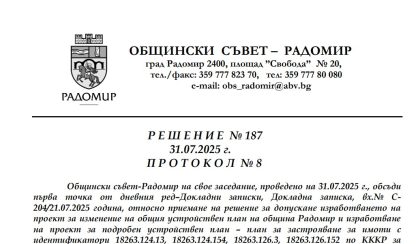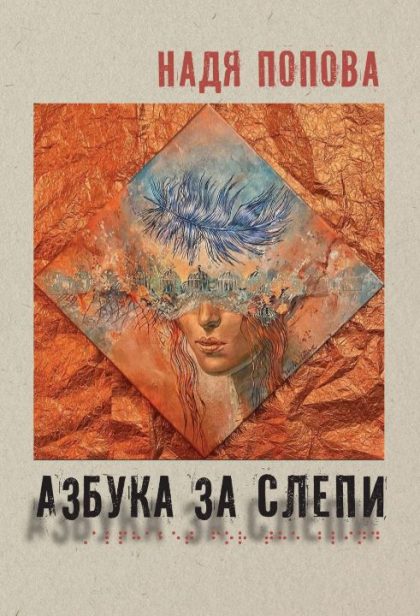Forget Valentine. If you’re in Bulgaria on both 1 and 14 February, you’d better join in the wine-soaked holiday of St Trifon Zarezan, the Bulgarian patron saint of vineyards
by Minka Vazkresenska
No matter where you are – Los Angeles, London, Paris, Moscow, Bangkok or Tokyo – 14 February is celebrated in the same way. Crossing cultural and religious boundaries, Valentine’s Day everywhere includes red hearts, chocolate, champagne and Mariah Carey singing „Without You.“
The same holds true for Bulgaria. After the fall of Communism the previously unknown St Valentine gradually claimed his usual place of honour on 14 February. But unlike anywhere else in the world, in Bulgaria the patron saint of lovers found that his feast day was already taken by another saint – one so popular that people still honour him on both 1 February (New Gregorian Calendar) and 14 February (Old Julian Calendar). Tirelessly. And since fate has a strange sense of humour, it turns out that the saint in question is the patron of one of the things crucial to Valentine’s Day – wine.
St Trifon Zarezan – the only saint in the world who gives St Valentine a run for his money – is truly remarkable. His feast day is perhaps the only religious holiday in Bulgaria besides St George’s Day that survived the atheistic Communist era unmolested – it was the winemakers’ holiday. However, don’t be so foolish to think that just because it’s a religious holiday on St Trifon’s Day Bulgarians stampede to church for some eulogy mass. Even back in the time when Bulgarian villagers still wore traditional native dress in everyday life, they celebrated St Trifon’s Day in a highly non-canonical way.
St Trifon is considered the patron saint of wine and vineyards – as well of as publicans and falconers. In the past on his day Bulgarian men would troop out to their snow-covered vineyards and cut back the vines. This is an extremely important activity, as the owner’s pruning skills determine how many grapes will grow that year and, as a consequence, how much wine will be produced.
The first cutting of the vines, however, was a holiday ritual – no one bothered to trim all the vines on that very day. Women would get up early in the morning, roll up their sleeves and knead unleavened bread. While it was baking, they would stuff a chicken with wheat or bulgur, boil it and bake it. While the women were busy in the kitchen, their husbands would get up, put on their best holiday clothes and go to church. After the service, each man would return home and traditionstake a new bag that his wife had filled up with a loaf of bread, the chicken and a baklitsa, or wooden flask, of wine. The men would gather together and go out to the vineyards. They would cross themselves three times, and each would cut three vines and douse them with wine – and that’s where the work ended and the fun began. They would then feast on the chicken, drink up the wine and select the best vintner among them, crowning him as tsar na lozyata, or king of the vineyard, with a wreath woven from small vines. The king would sit in a small cart and together the whole group would return to the village. The men would stop in front of every door, and the woman of the house would come out with a small jug of wine and treat everyone to a sip, pouring whatever was left over on the king, who in the meantime had given the house his blessing.
After making the rounds of the village, the king would return home to change – during that time his wife would lay out a feast for visitors. Traditionally, almost the entire village would drop by to sample the king’s wine.
Now, of course, almost no one celebrates the holiday in this way. Winemakers still get together, cut the vines and choose a king – but nobody is doused in wine anymore. Yet one thing about the holiday remains unchanged – getting drunk on all kinds of alcohol. Bulgarians enjoy this so much that they celebrate St Trifon’s Day twice.
Indeed it may seem rather strange that such excesses have become associated with a holiday dedicated to the martyr St Tryphon of Syria. According to his official biography, he was born in 225 AD in Asia Minor, a mild-mannered and God-fearing lad so skilled at healing people that they would convert to Christianity out of gratitude. Tryphon even enjoyed the Roman emperor Gordian’s goodwill after curing his daughter of a strange illness. However, things changed when the passionately anti-Christian Trajan Decius ascended to the throne in 249. It was only a matter of time before the words martyr and saint were added before Tryphon’s name. In Bulgarian folklore, however, the God-fearing Trifon – who was so accommodating to his persecutors that he died of his own accord before they cut his head off – has undergone a radical transformation.
According to legends, St Trifon was famous for three things: being a good vintner, being the Holy Virgin’s brother and being completely tactless. Forty days after Jesus was born, the Holy Virgin brought her son to The Temple, passing by Trifon’s vineyards on the way. The owner happened to be there, carefully pruning the vines. Seeing his sister, however, he became riled up and yelled: „Where are you taking that bastard? Where’s his father?“ Infuriated, the Blessed Virgin went back to the village and found Trifon’s wife and told her, „Go quickly out to the vineyard – Trifon has cut his nose off!“ The frightened woman immediately ran off to help her husband. When she reached the vineyard she found him perfectly hale and hearty, whistling away and cutting his vines. „Trifon, they told me you had cut your nose off,“ yelled his wife. „You stupid woman,“ replied Trifon, who didn’t treat his wife too politely, either. „Look, my nose is right where it’s supposed to be“ – and he pointed to his nose with the knife he was using to prune the vines and accidentally cut it off.
Since then St Trifon has had the nicknames Zarezan, or the Cut One; Chipiya, or Snub-Nosed; and Beznos, or Noseless. And on St Trifon’s Day women are strictly forbidden from going to the vineyards – if they do, no grapes will grow. St Trifon’s Day is also celebrated in various ways in Serbia, Moldova, Romania and the Epirus region of Greece. In some places you might even hear similar stories about Trifon’s fateful meeting with his sister. Outside Bulgaria, however, the saint has many more responsibilities – he is the protector of all crops. Only the Bulgarians associate him solely with wine and vineyards – and only they drink themselves into oblivion in his honour.
Again, the answer is in the legends – which goes to show that Zarezan not only does not deserve to be a saint, but that he has nothing to do with Christianity. He is in fact a thinly disguised pagan god – Dionysus, the famous patron of wine and orgiastic celebration, who according to the ancient Greeks came from Thrace. Dionysus was born from the adulterous affair between Zeus and Persephone, the queen of the underworld and wife of Zeus’ brother Hades. When Hera, Zeus’ wife and sister, found out about the child, she was furious – a common occurrence in Greek myths, thanks to her husband’s womanising. The goddess forced several Titans to find the infant Dionysus, lure him away with toys, tear him to pieces and eat him. Only the young god’s heart was left in one piece. Persephone ate it and again gave birth to the god of wine, vineyards and wild ecstasy.
Other traditions also hint at the dark side of Trifon Zarezan’s holiday. In the past, a macabre mood dominated Bulgarian life for the two days following the saint’s day, called Trifuntsi. According to folk beliefs, on these days the wolves were especially aggressive, and the only way to keep them away from people and domestic animals was to observe a series of taboos. The strictest rules applied to women: They were forbidden to touch anything sharp or – God forbid! – to cut anything with scissors, lest they open the wolves’ mouths.
One of the most extravagant theories goes even further in its explanation of the strange saint, Trifon Zarezan. According to it, both Trifon and his ancestor Dionysus are more recent versions of an ancient Thracian god who was the patron of not only wine but also death and the underworld. But don’t let that scare you – modern Bulgarians celebrate Zarezan in the most hedonistic manner possible, devoid of all sombre and creepy elements. They also don’t mind if you want to add sentimental St Valentine to the mix – as long as you don’t go overboard with Mariah Carey.
More saints come marching in
Few Bulgarians know that 14 February is also the feast day of Sts Cyril and Methodius. On this day Catholics honour the two Byzantine brothers who created the first Slavonic alphabet during the 9th Century as the patron saints of Europe. Bulgarians consider them some of their most important saints, because after the two brothers’ deaths their students settled in Bulgaria to continue their work and also because of the fiercely held belief that the brothers are of Bulgarian descent. However, in Bulgaria their feast is celebrated on 24 May. In fact, 14 February is the day on which Cyril died.







„Even back in the time when Bulgarian villagers still wore traditional native dress in everyday life, they celebrated St Trifon’s Day in a highly non-canonical way… He is in fact a thinly disguised pagan god – Dionysus, the famous patron of wine and orgiastic celebration, who according to the ancient Greeks came from Thrace. Dionysus was born from the adulterous affair between Zeus and Persephone, the queen of the underworld and wife of Zeus’ brother Hades.“
Traditionally, the Bulgarian christianity is pagan; it has very little impact on the Dionysus origin – it is only slightly pragmatized in order to serve the Orthodox (Byzantine) Church canon.
Prof.Ianko N. Iankov-Velyovski wrote in his book, THE LEGITIMATE BASES OF POLITICAL POWER IN BULGARIA.– Sofia, „Ianus“, 2007. 491 pp.),
„Why assume that it is February 14 this holiday?
It is assumed that on this day birds mate in pairs, that is the time of the first spring awakening.
Actually, this is an ancient given day of spring awakening: in ancient Greece on this day started Dionysus bacchanalia dedicated to Dionysus – the god of wine and fertility; in ancient Rome on this day was celebrated Liber – god of planting and fertilization, in which Liber’s daughter – Libera, was identified with Ariadne – wife and priestess of Dionysus.
The spring festival in ancient Rome on this day arose the custom of young men to choose a name for a girl to accompany the celebration – and in this is the pagan roots of the holiday, because for the first time there happens ritual and legitimate „mating“ in pairs ; however, this is lacking in ancient Greece because there is a dominant marked indifference of the ancient Greeks to intersexual love, and during the Dionysus, they demonstrated no love, but unbridled sex, and not so androgynous as precisely unisexual, and especially – sex with all the possible use of such animals (bestiality).
For Eastern and foremost Balkan culture and civilization the day February 14 is a universal narodnosten holiday, celebrated as the Day of Trifon’s Day, or otherwise – Day of general drunkenness.“ (pp.92-93)
„Careful analysis reveals that despite the common roots and common day in the West and the East holiday, the limit is apparent cultural gulf beween them. While Western culture and civilization manifests as culture and civilization of joy, love and development, the Eastern European or Balkan civilization manifests itself as a civilization of fear, bacchanalia and survival, while Western civilization appears as a natural and positive historical experience, the East – the negative positioning of natural and historical development.“ (p.94).
PS. ‘§6.On the nature of two cultural and civilisation markers’ (pp.91-94 of THE LEGITIMATE BASES OF POLITICAL POWER IN BULGARIA) is published on http://iankov.blogspot.com/2009/11/blog-post_07.html).
PPS. The book, THE LEGITIMATE BASES OF POLITICAL POWER IN BULGARIA), is available at the Library of the University of Illinois.